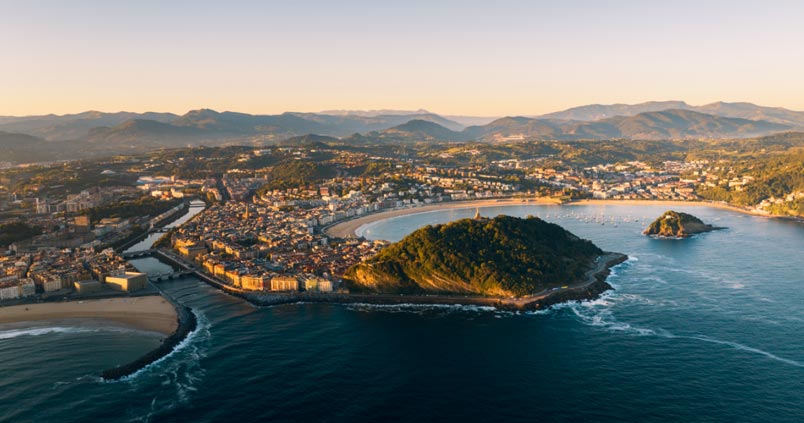San Sebastian, finalist in the European Capital of Smart Tourism competition with a sustainable innovative offer
- Friday, 29 September 2023

- Donostia / San Sebastián has been shortlisted as one of six finalists in the European Commission's European Capital of Smart Tourism competition singling out cities with an exceptional commitment to smart tourism: sustainable, respectful, innovative, cultural.
- San Sebastián was one of the cities which notched up the highest scores on the EU award's four criteria: sustainability, accessibility, digitalisation and cultural heritage and creativity. The winning city will be announced on 28 November in Brussels.

The European Commission has announced the cities shortlisted as finalists for the European Capital of Smart Tourism 2024 award, sizing up their exceptional commitment to sustainable innovative tourism.
Culture, Basque and Tourism Councillor Jon Insausti said “we are very happy to have reached the final, as this acknowledges our solid commitment to smart tourism, with sustainability, innovation and the local population's living standards as the main drivers of our strategy. Recognition of work over many years, and most especially of public/private collaboration by all those involved in the sector and participation by the public at large. It is a pleasure to share experiences within a network of European cities, and we hope we can pitch our entry to become European Capital of Smart Tourism 2024, which will definitely act as a loudspeaker to bring in talent and international targets, while encouraging innovative projects to improve standards of living and visits to our city".
Of the 30 cities contending from 17 countries, the finalists are Donostia / San Sebastián, Dublin (Ireland), Genoa (Italy), Helsingborg (Sweden), Bremerhaven (Germany) and Cork (Ireland). These six notched up the highest scores on the EU competition's four criteria: sustainability, accessibility, digitalisation and cultural heritage and creativity.
The innovative approach to data management by the Donostia / San Sebastián Tourism Observatory, making use of Big Data and Open Data to create a repository with interconnected information from several city hall departments, was one of the highlighted projects. Insausti added that “if tourism is to be managed properly, it is vital to collect and process data. This will give us more information on the sector, and will enable us to draw up better policies. It will also help us maintain rigorous debate and discourse beyond any individual feelings and impressions. A smart tourist destination must be one that properly and reasonably combines a welcome for visitors with the satisfaction of local people. We are aiming to become a top-notch tourist destination, with first-class living standards for the people of Donostia".
The final six must submit their entries to an expert independent EU jury panel in Brussels on 27 November, and the winner will be announced the following day. The city that becomes European Capital of Smart Tourism will have assistance with communication and branding in 2024, in order to position itself as a "smart" destination”, publicise its smart/innovative projects, involve stakeholders, attract strategic audiences from abroad and share good practices with a network of European cities that are working towards smart, sustainable tourism.
The European Capital of Smart Tourism competition is an EU initiative set up in 2018 to reward cities for innovative practices in areas such as accessibility, digitalisation, sustainability, cultural heritage and creativity. It has also served as a platform to showcase good sustainable tourism practices and boost networking among cities. Previous winners have been Sevilla and Paphos (2023), Valencia and Bordeaux (2022), Málaga and Gothenburg (2020), and Helsinki and Lyons (2019).